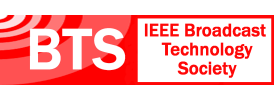- About
- Members
- Sponsors
- Subcommittees
- Technical Documents
- News
- Events
- Spotlight ATSC 3.0
- Contact Us
- Member Login
- Member Meetings
- Advanced Search
Search Site
Member Links
- About
- Members
- Sponsors
- Subcommittees
- Technical Documents
- News
- Events
- Spotlight ATSC 3.0
- Contact Us
- Member Login
- Member Meetings
- Advanced Search
Term
encyrption
Posted on April 1, 2015 in
The method of protecting EMM and ECM messages by cryptographic methods.
encoding (process)
Posted on April 1, 2015 in
A process that reads a stream of input pictures or audio samples and produces a valid coded bit stream as defined in the Digital Television Standard.
encoder
Posted on April 1, 2015 in
An embodiment of an encoding process.
embedded Xlet
Posted on April 1, 2015 in
An Xlet that was loaded as a result of processing a markup content entity referenced by a declarative application; an embedded Xlet is specified by means of an XDML object element.
elementary stream clock reference (ESCR
Posted on April 1, 2015 in
A time stamp in the PES Stream from which decoders of PES streams may derive timing.
elementary stream (ES)
Posted on April 1, 2015 in
A generic term for one of the coded video, coded audio or other coded bit streams. One elementary stream is carried in a sequence of PES packets with one and only one stream_id.
effective permissions
Posted on April 1, 2015 in
A set of granted permissions which apply to an application instance.
editing
Posted on April 1, 2015 in
A process by which one or more compressed bit streams are manipulated to produce a new compressed bit stream. Conforming edited bit streams are understood to meet the requirements defined in the Digital Television Standard.
earliest target acquisition time
Posted on April 1, 2015 in
The target acquisition time of the first instance of a target transmitted by means of one of the asynchronous delivery protocols specified in ATSC Standard A/90.
earliest activation time
Posted on April 1, 2015 in
The earliest activation time is the earliest System Time Clock instant at which a specific target is activated using all emitted triggers (both asynchronous and synchronized).
News Categories
News Archives
Subscribe
Subscribe to The Standard, our monthly newsletter. Learn More
Join ATSC
ATSC is a membership organization with both voting and observer categories. Voting members include corporations, nonprofit organizations, and government entities, and they participate actively in the work of ATSC. Observers are individuals or entities not eligible to be a voting member.
Subscribe to our Newsletter
Subscribe to The Standard, our monthly newsletter, to stay up-to-date with ATSC news and events around the world.
Site Links
Contact Us
ATSC
1300 I Street NW, Suite 400E
Washington, DC 20005 USA
Do you have questions about ATSC?
About ATSC
ATSC, the Broadcast Standards Association, is an international, non-profit organization developing voluntary standards and recommended practices for digital terrestrial broadcasting. Serving as an essential force in the broadcasting industry, ATSC guides the seamless integration of broadcast and telecom standards to drive the industry forward. Currently, the ATSC 3.0 Standard is providing the best possible solution for expanding the potential of the broadcast spectrum beyond its traditional application to meet changing needs. From conventional television to innovative digital data services, ATSC has one clear goal: to empower the broadcasting ecosystem like never before.
© 2026 ATSC































